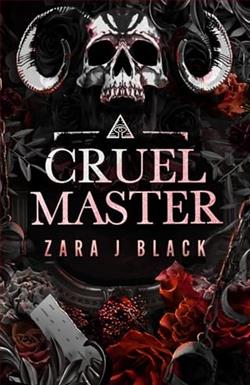Page 22 of Fear of Flames
Saving her.
In reality, her death would have saved her from ever learning about the agency.
Fletch could tell himself that he did what he did for Denny, and that wouldn’t be a lie. However, after all these years, he could admit if only to himself that he saved Michelle for her and for him.
Fletch included two other operatives on this mission, and he knew he’d get his ass chewed. Leo had been close. Fletch could have taken cleanup duty at Denny’s, but not with Shelly at his side. The work needed to be done. The shed had to go. Any evidence that Dennis Holdcraft wasn’t simply a retired policeman living in the woods had to be erased.
Leo went above and beyond by providing the pickup truck, returning the snowmobile, and scouring the cabin. When two people faced death together time after time together, and a favor was requested, questioning never occurred.
Yes. Copy. Received.
Without Leo’s help in Iron Falls and Colt’s help in Indianapolis, the shitstorm Denny found himself in would have been a lot worse.
Fletch turned off the truck and settled in, Shelly’s house in his view. He recalled the first time he’d laid eyes on her; she was a recent college graduate. He’d been assigned to a case in Indianapolis. Prior to Denny’s move, the case would have been his.
The time had come for jury selection in a high-profile case. The agency had a stake in the verdict. Sometimes the agency took care of the problems themselves. Other times, they allowed the appearance of justice. Allowing a case to go to trial accomplished many things, such as bringing evidence to light that would have been hidden with the alternative.
There in the courtroom was Michelle Holdcraft, sitting in the third row. Fletch was new to the agency, but he knew Denny. He’d heard about Tracy. Seeing Shelly Holdcraft in person was a starstruck moment. Somehow the two agents had pulled off the double life. Not many in the agency could do it. They had and the proof was right in front of him. Shelly Holdcraft was indeed real.
Her light-blue eyes studied each potential juror with the narrow-mindedness she’d acquired in pre-law. The defense wanted impartial, open-minded, and sympathetic candidates. The prosecutor wanted jurors who would follow instructions, consider facts objectively, assess credibility, and base their decisions on evidence.
That was basic jury selection.
It wasn’t the way the agency looked at juries. The world was more black-and-white in their eyes. Good versus evil. Right versus wrong. Understanding the sides was more complicated than a simple moral dilemma.
Fletch hadn’t been certain which way Michelle was leaning. The case involving the abduction of a young girl had received national attention. There was more at stake than the future of the accused. A network involving abducted children needed to be exposed. The perpetrator, while guilty as sin, needed to be released. Doing so would make him a target to those over him.
The agency wasn’t satisfied with putting the man in prison. They wanted those higher up the ladder. Those people would probably kill the defendant in time. That was less expensive to the taxpayers.
It took Fletch’s discipline and grounded determination to stay focused on the case at hand. Despite that training, Fletch had the urge to move a few rows up and introduce himself.
Of course, he wouldn’t have used his real name.
When they finally met, he did. Fletcher was the name he used to have, when he was alive. In the agency, he was known as Arrow, an agent that found his targets.
Fletch had been mostly right about the jurors to be seated. There was one in particular who would be useful. Fletch couldn’t visit the courthouse every day of the trial without calling attention to himself. He didn’t return or see Shelly again until the day of the verdict.
He knew the outcome before the announcement. That was why he was shocked at the ending of Michelle’s novel The Wishing Well. In her story, she changed a few key pieces of evidence. If she only knew how accurate she’d been. In reality, it wasn’t the storyteller who altered the evidence. It was the agency.
It took only one juror to cause a hung jury.
Seat the right influential juror and that one person can persuade the entire group. In the actual case, it was a woman—juror number seven. In The Wishing Well, the trial ended with a guilty verdict.
While Fletch hadn’t expected that, he liked the way it worked on the page. After all, the author didn’t know all the layers at work, or that despite the mistrial, the defendant would soon be no more.
Fletch’s cellphone buzzed, returning him to the present. The name on the screen was COLT. Fletch answered right away. “She’s in the house.” He didn’t need to say her name.
“Peterson is irate.”
The agency didn’t have ranks.
It wasn’t an official national agency within the military or intelligence community.
However, if it were and if there were ranks, Peterson would be a sergeant major who thought he was a four-star general. He was a blowhard who opened his mouth too often.
“Fuck him,” Fletch replied. “Both her parents gave their lives for the agency. That’s enough sacrifice for one family.”
“He wants you out there tomorrow. You’d better start driving or get yourself a plane ticket.”















